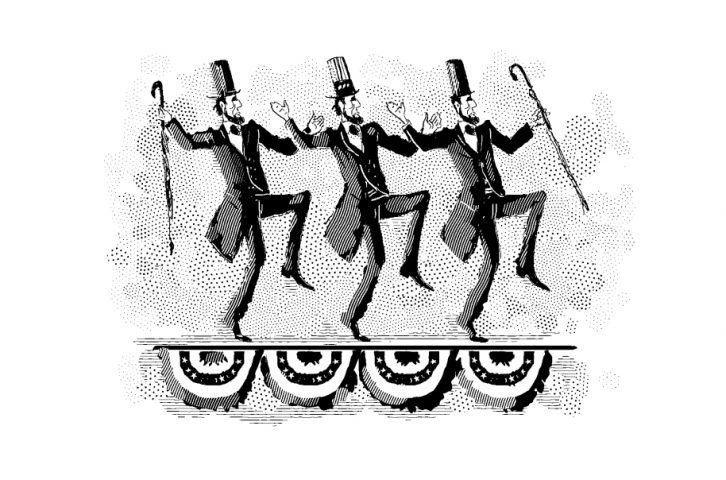Ask Republicans how they intend to vote in the upcoming primaries and you often hear, "There are two or three candidates I'd consider voting for…." Press the question, and "I don't know" is the surprisingly common reply.
The uncertainty, felt even by some who've endorsed a candidate, stems from many factors. The primary elections come earlier and thicker than ever this year, intruding on the holidays and the holiday spirit especially of the vanguard voters in Iowa and New Hampshire, but disquieting any American who would like to deliberate about this fateful choice a little longer. There are a lot of Republican contenders to choose from, too, and most are plausible as president.
But the main cause of the perplexity is something else, I think. Republicans lack a clear criterion by which to make up their mind. Not so long ago, that standard would have included a definition of conservatism—ragged at the edges, but still serviceable. But American conservatism's meaning, even in its heyday never uncontroversial, is less clear today. And the implications of that meaning—where conservatism should go from here—are more up in the air than at any time since the movement's founding in the 1950s.
Conservatism helped to win the Cold War and to discredit socialism, fulfilling two of the modern Right's defining objectives. After such sweeping success, it may seem ungrateful to ask about conservatism's second act. But by its own lights the movement has left vital goals unfulfilled—ending or rolling back or "conservatizing" big government, and restoring America to moral and cultural health. Unlike the defeat of Communism and socialism, goals shared by all conservatives and functioning as the movement's great amalgam and inspiration, shrinking the state and rehabilitating American morals are the favorite causes of different, and to some degree differing, parts of the Right.
Conservatism's slow loss of focus after the Cold War's end was predictable (and often predicted). That the "crack-up" never occurred quite as predicted, however, shows that a broad agreement persists among conservatives. Nonetheless, the bonds between libertarian and social conservatives have weakened. Although 9/11 revealed a new common enemy, the effect was more to change the subject than to forge a new consensus on the Right. After all, the issues that remain—how to limit government again, whether and how government should promote virtue, and more generally, how to restore the republic along the lines of the Declaration of Independence and the Constitution—are difficult.
As a result, Republican presidential candidates are tempted, indeed almost compelled, to reinvent conservatism for our times. George W. Bush tried this with "compassionate conservatism." Mike Huckabee has his own blend of faith-based social nostrums and ambitious economic reforms. In fact, he combines the two in a Hail-Mary proposal to replace the income and payroll taxes with a national sales tax. He has less to say about foreign policy or small government. Indeed, he suggests, somewhat in the manner of a European Christian Democrat, that government should apply Christian charity in its programs as a way of correcting the excesses of capitalism and individualism.
Rudy Giuliani seeks to recast conservatism as the concern for limited government (shown notably in his proposals for health care reform) together with a fierce willingness to wage war on terrorism. By almost explicitly excluding religious and moral conservatism from his definition, he comes close to pointing the American Right in the direction of a robust form of libertarianism or old-style European liberalism. But count on his own spirited concern for public morals, prominently displayed when he was mayor of New York, for many detours from such a path.
Mitt Romney aspires, with some success, to be a conservative for all seasons. But his emphasis on his achievements as a businessman and consultant—crunching the numbers with Jack Bauer ruthlessness until they confess their secrets—so ill-fits our wartime situation that it is no wonder that conservatives doubt his seriousness on moral and foreign policy questions. No one wonders about John McCain's seriousness, of course, but many wonder if his noble disdain of self-interested actions (whether campaign contributions or waterboarding) may not go too far in the other direction. Fred Thompson, for all his virtues, seems to want to play Ronald Reagan redux. But the challenges facing the Right occur in a new context and require fresh thinking; and in any event, the sequel is rarely as compelling as the original.
One could go on. The problem is that Republican voters don't recognize any of these trial versions of conservatism as the real deal, a distillation of American principles for our time; and they're right. In the meantime, however, there is a president to nominate and elect.


